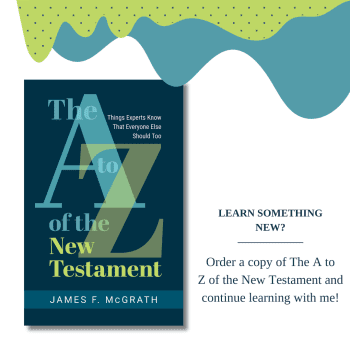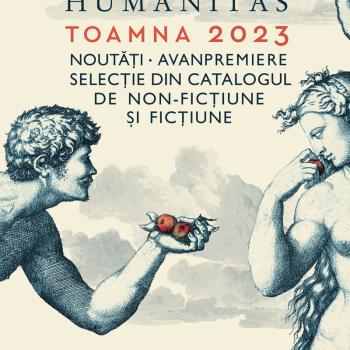I was really struck by a phrase that is used in Jill Hicks-Keeton’s insightful review of Beth Allison Barr’s book The Making of Biblical Womanhood. She suggests that “evangelical Christianity might be irredeemably patriarchal precisely because of its biblicism.” The precise wording of this phrase (typical of Hicks-Keeton’s remarkable ability of nuancing things with amazing precision and eloquence that eludes most of us scholars) seems to get things precisely right, and to sum up what I consider key points in the review. Christianity is a historical phenomenon, and what it is today is what we make it. As Barr puts it in a piece in Publishers’ Weekly, “Biblical womanhood isn’t biblical. It was made in history, which means it can also be unmade.” But it depends what one means, and there is a skirting of some important issues that a liberal Christian like myself would wish to emphasize – and yet if Barr had been more direct and explicit about these points, it would have made her case against “biblical womanhood” less persuasive to those entangled in its worldview. The entire Bible reflects its patriarchal context. As Hicks-Keeton puts it, “An archive of ancient literature shaped by political, socio-cultural, and institutional factors, the Bible developed in conjunction with patriarchy.” The Bible is a product of its time, made by human hands, an idol if its symphony of human voices is mistaken for the voice of God. Yet the abolitionists, the advocates of ordination of women, and those who stand for inclusivity of people across longstanding divides of ethnicity or sexuality, are not all misguided modernists desperately trying to cram a more enlightened ethics into a text to which it is alien. There is genuinely within the Bible, not merely alongside but woven together with the patriarchy and everything else that troubles us, a variety of principles and slogans that point beyond themselves. Just as “all men are created equal” could become in the hands of civil rights advocates a call to something at once genuinely American and alien to the thinking of the Founders, so too slogans such as that there is “neither Jew nor Greek…male and female” have potential that points beyond anything that Paul did with it (to say nothing of those who later wrote in his name).
I wrestled with this so much when writing What Jesus Learned from Women. I was aware of my desire as a Christian that Jesus be progressive, that he be good, that he transcend his time and place and speak not just directly to my time but in a manner that advocates for justice, equity, and inclusivity. I was aware that that desire could lead me to misread the text, with an added pitfall of antisemitism since so many have depicted Jesus as inclusive across national and gender divides as though he stood in stark contrast not merely with patriarchal preferences shared across many cultures and time periods, but with Judaism. Yet I also saw the trajectory that pointed away from patriarchy, ones that were discerned by those approaching with skeptical scholarly tools and questions in mind. One thing that helped me find what I hope is a balance between the two errors that confronted me on either side, was recognizing precisely that Jewish (and Samaritan and Syrophoenician) women played a role in influencing Jesus in this direction. Feedback from an array of academics with perspectives different from my own (in particular Amy-Jill Levine deserves a mention here) helped me see things that were problematic with what I wrote (despite my desire and efforts) and to revise them.
I don’t and won’t claim that my book hits the perfect balance between the feminist scholarship that sees in Jesus and some of his early followers allies in the fight against patriarchy, and feminist scholarship that sees in Jesus and his movement many things that stand in the way of efforts towards equality. But I will say that it is built on a foundation that recognizes why these divergent and even contradictory interpretations of the evidence are possible, and seeks to walk the tightrope that balances between them, believing that an accurate depiction of the historical Jesus lies along that tightrope, rather than on the ground beneath it in one direction or the other.
Christianity need not be patriarchal, because it need not be biblicist, i.e. it need not adhere rigidly to “what the Bible says.” In my view, and I believe that of Barr, Evangelical Christianity need not be patriarchal either, since even at its most biblicist moments it is picking and choosing, and there are things that we can choose within scripture that liberate rather than imprison, that elevate rather than denigrate and subjugate. As a liberal Christian, and as a scholar, I agree with Hicks-Keeton that the best approach (for those seeking to be as brutally honest about themselves and the Bible as possible) is to recognize that the Bible is human, historical, and diverse, so that we do not merely substitute one idol made in our image for another, merely treating more progressive texts as “what the Bible says” instead of those preferred by conservatives. In my opinion, the battles against slavery, against patriarchy, and on and on are made worse when we don’t recognize that the problem with appealing to “what the Bible says” isn’t which texts you choose to cite or start with, but the very method itself.
Idolatry is still idolatry even if the idol you have made stands for things that are genuinely praiseworthy and uplifting.
Also related to this topic and more specifically to my book, I have written another guest post that has now appeared on Bart Ehrman’s blog:
https://ehrmanblog.org/jesus-under-the-influence-of-women-guest-post-by-james-mcgrath/
Coming up on June 11th (mark your calendars!): I’ll be talking with Laura Robinson and Jon De Pue on the Apocalypse Here YouTube channel.
Also related to this topic:
Sarah Stankorb, “Why the Greatest Weapon Against Christian Patriarchy Is the Bible”
Open access book: Isabelle Cogitore, Anne Bielman Sánchez et Anne Kolb (dir.), Femmes influentes dans le monde hellénistique et à Rome: iiie siècle av. J.-C.-ier siècle apr. J.-C.
REVELATIONS: The Mysticism of Julian of Norwich and Margery Kempe












